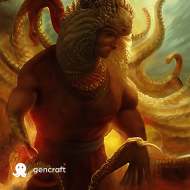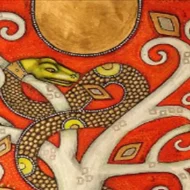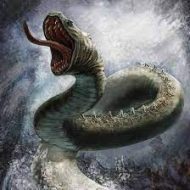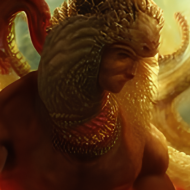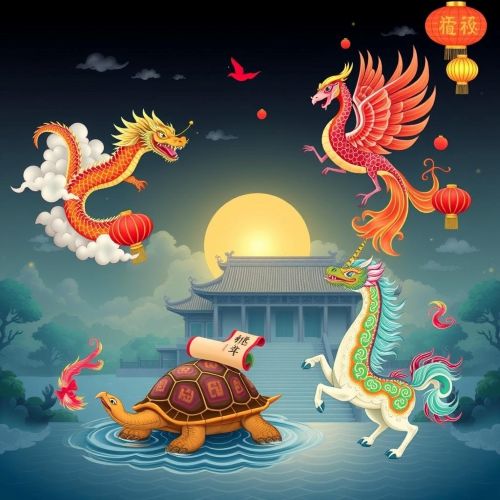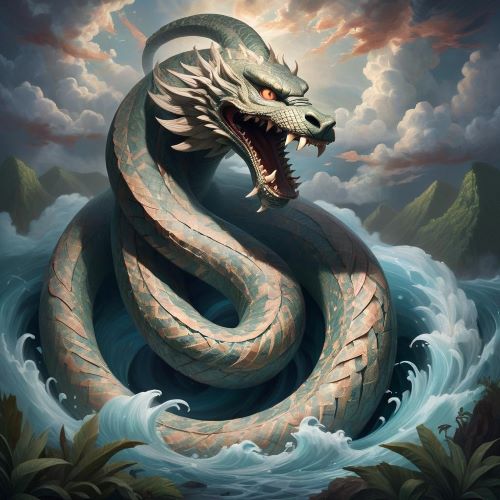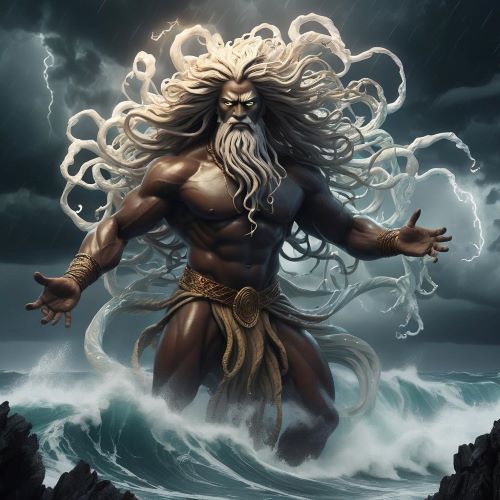Ratumaibulu : The Snake God
Listen
At a glance
| Description | |
|---|---|
| Origin | Fijian Mythology |
| Classification | Gods |
| Family Members | Degei (Father), Raivuki (Wife) |
| Region | Fiji Islands |
| Associated With | Snakes, Agriculture |
Ratumaibulu
Introduction
Ratumaibulu is regarded as a god who has great importance in Fiji’s mythology. He is believed to be a snake god who lives in the land of spirits. According to legend, he came from Bulu, and he is responsible for the production of breadfruit.
Physical Traits
In some cases, Ratumaibulu is depicted as a creature with a head of a snake with a man’s body, while others refer to him as a man with a serpent’s body. He is sometimes regarded as a representation of Degei.
Family
In Fijian mythology, the word Bulu refers to a place in the realm of spirits. In the month of Vula-I-Ratumaibulu which is also known as Ratumaibulu month, the god is believed to help produce breadfruit and other fruits by making the trees bloom. He is regarded as a god of agriculture and has great powers.
According to another source, a place known as Nabagatai is situated on the road to the land of souls, also called Bulu. The westernmost point of Vanua Levu is where the departed souls started their journey to the spiritual home of the blessed, Bulu.
Ratumaibulu is married to Raivuki, the god of seasons and is also considered to be a son of Degei.
Powers and Abilities
Ratumaibulu ranks second only to the great deity Ndengei among serpent gods. He lives in Mbulu, which is the land of the deceased. During the month of Ratumaibulu, which is equal to our November until December, this god visits Fiji to help bring spring. Since Fiji is in the southern hemisphere, its seasons are the opposite of ours.
Ratumaibulu month is a time of great joy for the people of Fiji as the trees bloom and produce flowers and fruit. During this month, they refrain from making noise and are not allowed to sing, play music, or engage in war.
During the end of a certain period, priests bathe a Ratumaibulu statue and then, after offering it, musicians perform a ritual to offer the deity a conch shell. The only god in Fiji who doesn’t drink yang-gona or kuva is Ratumaibulu. He is said to be supposing to the sounds and wind that come from the shells.
Upon the serpent god’s return to Mbulu from Namara, various rituals and songs are performed in the town. The priests are also reportedly drunk during the festivities.
Modern Day Influence
Although the worship of Ratumaibulu is very limited today, worship of his father Degei is still vibrant in the Fiji Islands.
Related Images
Frequently Asked Questions
What is lorem Ipsum?
I am text block. Click edit button to change this text. Lorem ipsum dolor sit amet, consectetur adipiscing elit. Ut elit tellus, luctus nec ullamcorper mattis, pulvinar dapibus leo.
What is lorem Ipsum?
I am text block. Click edit button to change this text. Lorem ipsum dolor sit amet, consectetur adipiscing elit. Ut elit tellus, luctus nec ullamcorper mattis, pulvinar dapibus leo.
What is lorem Ipsum?
I am text block. Click edit button to change this text. Lorem ipsum dolor sit amet, consectetur adipiscing elit. Ut elit tellus, luctus nec ullamcorper mattis, pulvinar dapibus leo.
What is lorem Ipsum?
I am text block. Click edit button to change this text. Lorem ipsum dolor sit amet, consectetur adipiscing elit. Ut elit tellus, luctus nec ullamcorper mattis, pulvinar dapibus leo.
What is lorem Ipsum?
I am text block. Click edit button to change this text. Lorem ipsum dolor sit amet, consectetur adipiscing elit. Ut elit tellus, luctus nec ullamcorper mattis, pulvinar dapibus leo.

